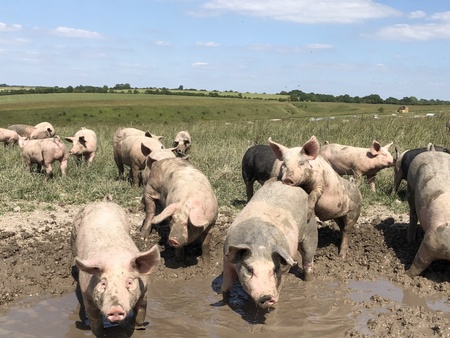The Nuffield Council on Bioethics is holding an inquiry into the genome editing in farmed animals. CEFAW was invited to respond to their consultation, and has submitted the following response:
The AHRC-funded research project, Christian Ethics of Farmed Animal Welfare (CEFAW) identifies the genome editing of farmed animals as presenting more, and more severe, threats to the wellbeing of farmed animals than the already problematic previous and ongoing practices of selected and marker-assisted selective breeding.
CEFAW is developing a Christian framework for considering the ethics of farmed animal welfare in partnership with national churches and other institutional partners. It is considering the relationship between Christian beliefs about God’s creation and care of all creatures, on the one hand, and about humanity’s God-given responsibility to care for fellow creatures, on the other. In particular, CEFAW examines the ways that consumer demand for high volumes of inexpensive animal products, financial pressures on farmers, the rise of intensive farming, and general assumptions that animals exist for human benefit both constrain possibilities for farmed animal welfare and challenge Christians to change the ways they think about human and animal thriving.
CEFAW understands farmed animal welfare to be determined by the degree to which systems of raising animals allow them to flourish. The more that farmed animals lead lives which fully participate in the capacities, characteristics, activities, social relationships, reproductive and rearing processes, and life-expectancies specific to their species, the more they flourish.
Current selective breeding practices seem chiefly motivated by desires to increase the profits and efficiency of animal farming, rather than by desires to improve species-specific flourishing. Genome-editing of farmed animals seems very likely to accelerate the pace of the already normative practices of reshaping the bodies and lives of animals for the convenience of producers, retailers, and consumers. We judge it likely that the addition of this powerful new technology to the preexisting systems of reshaping farmed animals for human benefit will result in reduced farmed animal welfare.
CEFAW’s emphasis on flourishing notes that freedom from pain is not the highest priority of animal welfare, and it may contribute more to the business of farming than to farmed animal welfare. For example, genome editing that reduces leg pain in broiler chickens may benefit production, but it will not contribute to the chickens’ species-specific flourishing, which depends on life outdoors in semi-protected habitats, opportunities for hen/chick relationships, life-spans longer than a few weeks, and freedom from body modification to produce breasts far larger than chicken bone structures can comfortably support. There are alternatives to genome-editing problem-solving that support farmed animal flourishing beyond the avoidance of pain, but these are only plausible when the flourishing of the farmed animal matters at least as much as the commodification of the farmed animal.
The technological development of genome-editing seems very likely to exacerbate and intensify the ways that previous breeding practices have already diminished farmed animal flourishing. The fact that there are currently breeding practices that do not involve genome editing does not mean that current breeding practices improve farmed animal flourishing. The claim that new technological methods of breeding—using genome-editing—merely build on pre-existing methods addresses neither the pre-existing challenges to farmed animal flourishing nor the known and yet-unknown effects of accelerated breeding modifications of farmed animals.
CEFAW calls for researchers to join retailers, industrial farms, smaller farmers, and consumers to take responsibility for the health and welfare of farmed animals and to supplement cost/benefit calculations with judgements concerning the degree to which the contexts in which farmed animals are raised enable their flourishing.


